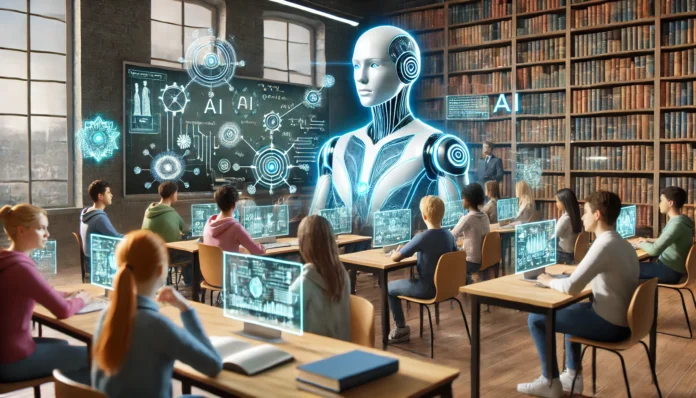Discover how AI is revolutionizing university tutoring by offering personalized, accessible, and efficient learning solutions. Learn about its benefits, challenges, and impact on education.
Round-the-Clock Accessibility
One of the most significant advantages of AI in tutoring is its round-the-clock availability. Unlike traditional tutors who operate on fixed schedules, AI-powered platforms such as ChatGPT, Duolingo, and Khan Academy’s AI tools provide 24/7 assistance. This means students can seek help whenever they encounter difficulties, whether it’s late at night before a deadline or early in the morning. This convenience is particularly valuable for university students juggling demanding schedules and tight deadlines.
Instant Feedback and Support
AI tutors offer instant feedback, allowing students to address doubts and correct mistakes in real-time. This efficiency ensures students can move forward in their studies without unnecessary delays. Whether solving intricate equations, debugging code, or improving essays, the speed and accuracy of AI responses streamline the learning process, making it more productive and time-efficient.
Personalized Learning Experiences
Personalization is a standout feature of AI tutoring. By analyzing a student’s learning patterns, strengths, and weaknesses, AI tools create tailored learning paths. For example, a student struggling with calculus might receive step-by-step breakdowns of problems and targeted exercises, while advanced learners are challenged with more complex material. This individualized approach ensures that students can focus on their unique needs and progress at their own pace.
Engaging and Interactive Methods
AI platforms incorporate interactive tools to make learning more engaging. Gamified quizzes, simulations, and visual aids are commonly used to hold students’ interest, especially in subjects that are often seen as difficult or monotonous, such as mathematics or coding. For instance, language-learning apps like Duolingo use gamification to keep students motivated and consistent in their practice, making the process enjoyable and effective.
Support Beyond Academics
AI’s capabilities extend beyond traditional academic subjects. It can assist with soft skills development, such as public speaking, resume writing, and interview preparation. By offering realistic simulations and constructive feedback, AI helps students prepare for professional challenges, complementing their academic success.
Limitations of AI Tutoring
Despite its advantages, AI tutoring is not without challenges. AI lacks the emotional intelligence, empathy, and mentorship that human tutors bring. Building a personal connection, offering encouragement, and addressing non-academic struggles are areas where human tutors excel. Additionally, ethical concerns regarding data privacy and the over-reliance on AI need to be addressed to ensure its responsible use.
Conclusion
AI is undeniably transforming university tutoring by democratizing access to high-quality educational resources, providing personalized learning experiences, and fostering engagement. While it cannot fully replace human tutors, its efficiency, accessibility, and adaptability make it an indispensable tool for students. As technology continues to advance, AI will play an increasingly significant role in shaping the future of education, making learning more effective and equitable for university students worldwide.





